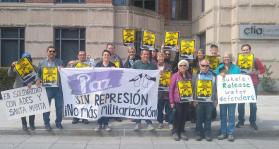New Political Parties Law Will Regulate Donations, Promote Women’s Participation
For the first time in history, legislation will regulate the financing of El Salvador’s political parties. The approval of the new Political Parties Law, which was introduced by the governing Farabundo Martí National Liberation Front (FMLN) party four years ago and passed on February 14, was delayed by right-wing opposition to proposed limits on private donations and quotas for women’s and youth participation.
The state institution that regulates national elections, the Supreme Electoral Tribunal (TSE), will enforce the new law, which caps private donations at an amount equal to 2% of the TSE’s budget from the previous year in non-electoral periods and at 3.5% of the previous electoral budget during campaign seasons. For the upcoming 2014 elections, a single private campaign donation can total no more than $939,000. Anonymous donations are now prohibited, and parties must disclose all private financing to their members.
In a major victory for women from across the political spectrum, the law mandates that 30% of a party’s candidates for municipal councils, the national legislature and the Central American Parliament be women. The FMLN has previously been the only party to enforce such participation, its statutes mandating a quota of 35% for women. The quotas for women ultimately divided the right-wing Nationalist Republican Alliance (ARENA) party; their six women legislators along with three men voted for the measure, while the rest of their legislative group opposed it.
FMLN legislator Norma Guevara, President of the Assembly’s Electoral and Constitutional Reforms Commission, said that, with this new law, “the political system has achieved an advance, and its implementation will represent the development of the democratic process that we have experienced as a nation.”

 "I am a CISPES supporter because continuing to fight for social justice and a more people-centered country means continuing the dream and sacrifice of thousands of my fellow Salvadorans who died for that vision.” - Padre Carlos, New York City
"I am a CISPES supporter because continuing to fight for social justice and a more people-centered country means continuing the dream and sacrifice of thousands of my fellow Salvadorans who died for that vision.” - Padre Carlos, New York City

